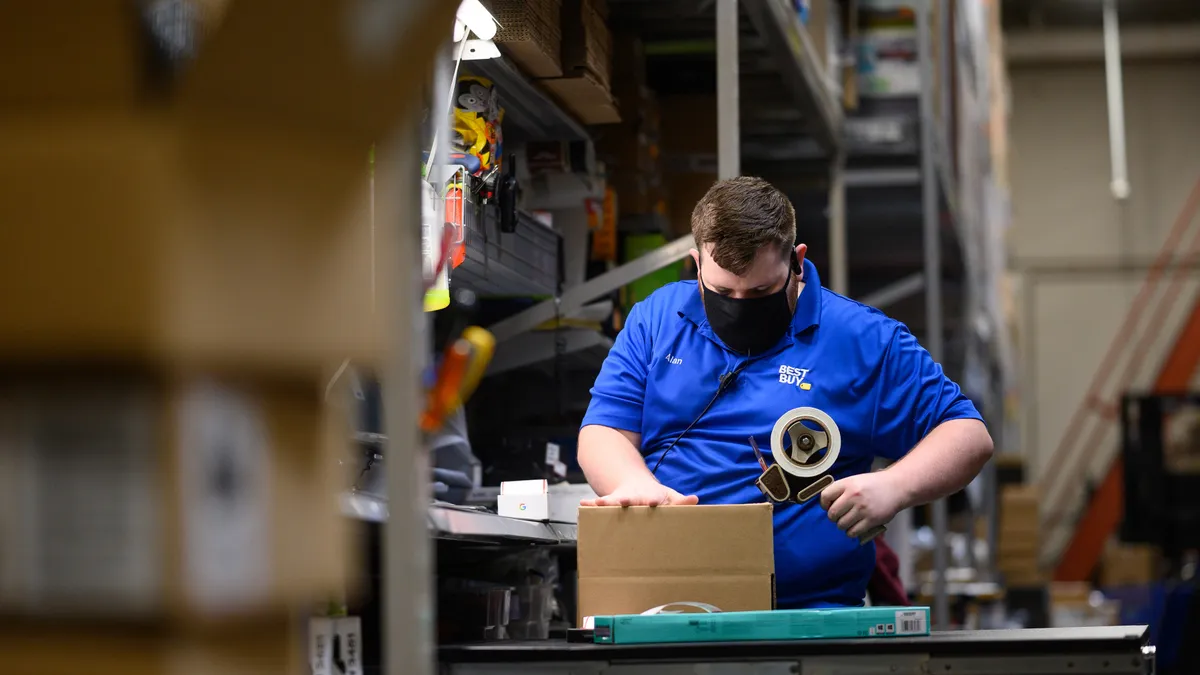Dive Brief:
- TreviPay, the global business-to-business (B2B) payments provider formerly known as MSTS, is on the hunt for acquisitions, CEO Brandon Spear told Payments Dive. The Overland Park, Kansas company is focused on targets in Southeast Asia and Latin America, as well as businesses with related financial products, or those with technologies that might accelerate its growth, he said.
- The company's budget for acquisitions was beefed up by its sale last year to New York private equity firm Corsair Capital, which paid $350 million to buy the business from the publicly-traded World Fuel Services Corp. It has reason to keep growing with $50 million of that purchase price conditioned on hitting certain financial targets.
- TreviPay, which recently said in a press release that it processes more than $6 billion in transactions annually, aims to capitalize on companies' efforts to digitally upgrade their payments systems at a time when the pandemic has significantly accelerated that trend for the business world, Spear said. Its customers include as retailer Best Buy, Chinese tech company Lenovo and auto-maker GM, according to Spear and the company's web site.
Dive Insight:
"Companies have accelerated their automation and digitization strategies," and demand for B2B services across industries has climbed significantly in the past 18 months, Spear said. In the consumer experience, people know how easy it is to buy a product digitally and have it show up on the doorstep. But the business world, where orders are more complicated, is playing catch-up, and the pandemic is fast-forwarding the trend, he said.
Research company Pitchbook noted in a fintech report last year that person-to-person (P2P) digital payments gained traction first, but B2B volume is now overtaking that consumer activity. In the B2B market, there is plenty of opportunity for growth, with an estimated half of payments still made using paper checks in the U.S., according to Pitchbook. Payments companies earn revenue by taking a slice of the total payment volume processed, typically about 3%, Pitchbook said.
TreviPay, with 600 employees mainly in the U.S., processes transactions in 18 currencies for business customers in some 27 countries. The company already has offices in Mexico, Costa Rica, the Netherlands, Singapore and Australia. Back in 2018, the company said it had operating revenue of about $150 million, according to a piece from Spear in Executive Viewpoints.
TreviPay was rebranded this year to reflect the City of Fountains that is the nickname for nearby Kansas City. It also gives a nod to the Trevi fountain in Rome at the intersection of three streets, symbolizing the three parties involved in the company's business--the corporate seller, its business buyers and TreviPay as the payments processor, Spear said. In addition to processing payments, TreviPay extends credit to some of its customers' clients to facilitate transactions.
As business has ramped up, so has competition, Spear acknowledges. The barriers to entry are low and white label credit card companies have flooded into the market, he said, contending though that their approaches are no match for his company's ability to tailor services to thousands of businesses with diverse and complicated invoice systems. Other digital B2B players include Tradeshift, Qwil and Recurly, according to Pitchbook. Still, Spear says the biggest competition to TreviPay remains companies choosing to use their own in-house payment systems as opposed to outsourcing the work.











